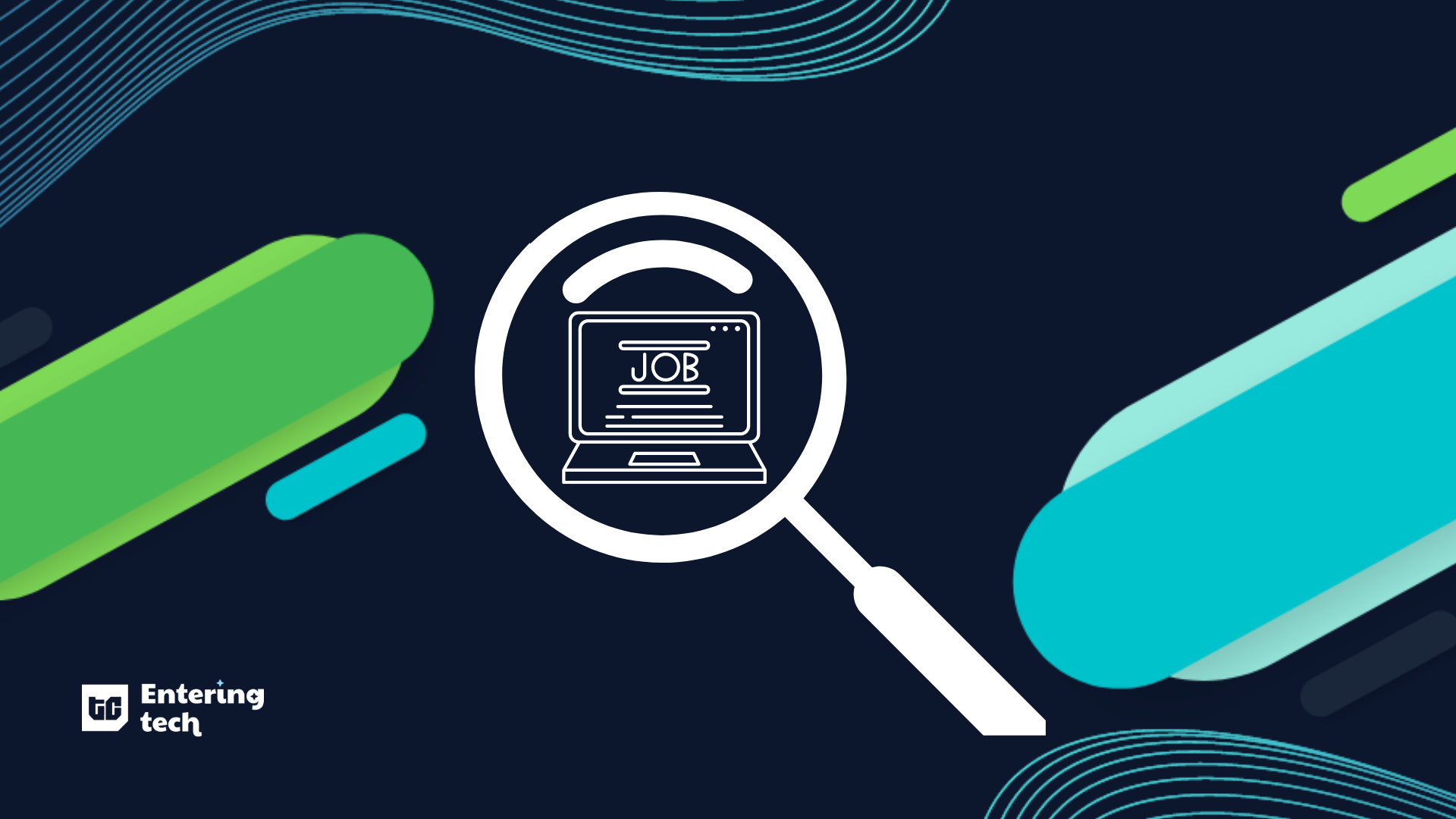
07 || 09 || 22
View in BrowserBrought to you by

#Issue 002
How to land your
first tech job
Hi 👋🏾
Welcome! Thank you for your responses to our launch last week. It has been gratifying to see some of you already taking action using the resources we shared in our first issue.
This week, we’re bringing you insights from a Kenyan tech recruiter whose job is to find talents for Microsoft across the EMEA region.
We also share tips and tricks for your tech journey and answer some of your pressing questions on how to leave the baggage of a career you’ve outgrown. You’ll also find job boards and our hand-picked job and education opportunities here. You see this tech bag? WAGMI. (We’re All Gonna Make It.)
Another day, another dollar.
by Immaculata Abba, Caleb Nnamani and Timi Odueso.

Tech trivia question
Some trivia before we begin. Answers are at the bottom of this newsletter.
- On average, how much time does a recruiter spend on a CV before they decide if you’re fit for the job or not?

How to land your first tech job
The first thing you need to know about landing your first tech job as an entry-level applicant is that it’ll probably take you months to land, and you’ll get a lot of rejection in the process.
Don’t be worried though; this is where all your previous romantic rejections will pay off.
As our guest, tech recruiter Joseph Gichuhi, will tell you today, there are not a lot of entry-level roles for tech on the continent. Everyone is building something and they need hands to help.
There are a few of these roles available across the continent and in this newsletter, we’ll talk about how you can position yourself to be in the very top 1% of applicants. This is, after all, one of the few places sticking out like a sore thumb helps!

DOs
Here’s a list of priority things you should be doing to land your first tech job
One of the things that can set you apart from other applicants is taking the right courses. Online courses give you an intro and practical working knowledge on some key things you’ll need to work on the job. There are thousands of free courses online from places like AptLearn, Udemy, Coursera and even Google. There are also some that cost a little bit of money. If you’re applying for jobs at important companies, having certifications on certain skill sets will give you an added advantage.
For every job advert, recruiters receive hundreds of applications and they spend less than 30 seconds reviewing each application. Having the required certifications can help you stand out from the crowd and it shows you have what recruiters call a “growth mindset”.

One of the best ways to land your first job in tech is by making sure you’re visible. Post your certifications on LinkedIn, GitHub, and especially Twitter. Recruiters often use social media to headhunt, so make sure you’re an easy target! Share your projects, journeys, learnings from internships, and other tangible information other than your love life on social media.
If you follow the right people in your field, like Adora Nwodo who shares opportunities in Cloud Engineering or Ire Aderinokun who runs an annual scholarship, you’ll get freebies that will help you land your first job.

DON’Ts
Here are a few things—other than not sharing #EnteringTech—you should stay away from
Why? Well, first because you’re learning the role and it’ll be harder to get proficient enough in one if you’re focused on too many things. Second, and most importantly, companies want to hire people who are experts at what they do; specialists.
💡If you’re wondering what a full stack developer does, check out our quick easy-to-learn explainer on TechCabal.
Your job applications and interviews will show how well you can explain the one role you want to be hired for, not how well you can juggle five other roles you’re not very good at. So don’t do too much, bestie.

Like we’ve said, there are not a lot of opportunities for entry-level tech roles so you’ll have to chase after the ones that are available. Unlike your dating pool options, there are not many fishes in the ocean. Aggressively chase your options and look for opportunities. In this edition of #EnteringTech, we’ve listed out some job boards that frequently show tech jobs; check them out every week, and apply as frequently as you can.
It’s a long process and it may not turn out the way you expect. Elon Musk might not decide to take you under his wing as his mentee and heir 😭. Paystack probably won’t shut down because they don’t have you on the team. But if you put in the work and time, you’ll find opportunities that you can take advantage of.

Hear it from a tech recruiter
For this week’s edition, we’ve brought a tech recruiter whose job is to find talents for Microsoft across the EMEA region.
Joseph Gichuhi is a talent acquisition specialist with nine years of experience in the areas of research, sourcing, technical, executive recruitment and talent engagement. He is a hybrid recruiter combining in-house and agency experience across Europe, Middle East, North, South and sub-Saharan Africa. Outside of recruiting, he is a husband, a father of two, and an avid sports and music fan.
Q. What does a tech recruiter do?
Tech recruiters help companies find tech talents. For me, I help companies hire senior software engineers and mid-level engineers across the continent. As a recruiter, my main duty is to find potential hires, take them through the entire recruitment process, and adequately prepare them for the hiring manager who makes the final call.
Q. When and why did you choose to become a tech recruiter?
My background is in communication, and I wanted to become a career journalist but that didn’t work out. In 2013, I joined a recruiting agency to help look for different clients within different industries.
But as time went by, I realised that organizations were clamouring toward hiring tech people. Luckily for me, a spot opened up when my colleague who was handling a lot of clients who had lots of tech positions left; I was then tasked now with finding tech talents.
It was around that time that Andela had set up shop in Lagos, and other big tech companies were getting interested in Africa. There was that buzz about recruiting tech positions and I saw it as an opportunity that would boom within a few years so I took it.
Q. How has your experience of working in tech been?
It’s been exciting, but crazy too.
Exciting because I get to speak to so many brilliant people who have built products that I’ve personally used. It’s also rewarding when people who you’ve recruited for or are recruiting reach out to thank you for a wonderful recruiting experience or for sharing advice while they were looking for new roles.
I say crazy because recruiters also bear the brunt when people don’t get jobs. There’s a lot of stakeholder management involved in tech recruiting, and you often have to juggle hiring for multiple roles at the same time.
Q. What are the misconceptions people have about your role?
The biggest one is people thinking that recruiters make the final hiring decision; we do not. That job belongs to the hiring manager who shares feedback—negative and positive—with the recruiters, and recruiters, in turn, have to share this feedback with the applicants.
There’s also the misconception that we are the ones who determine how much candidates will be paid. This isn’t the case in all organisations. Recruiters can’t decide on how much candidates are offered, there are already teams for that. Most times, all we can do is advise on the best possible offer for candidates.
Q. Which skills do you consider most important for your role?
Definitely experience. This is an unforgiving space and when you come in, you have to hit the ground running. This is where the ability to spot a good CV comes into play. For every role you’re hiring for, you get hundreds and sometimes thousands of applications. You need the ability to sport a good profile in the shortest time possible because the hiring manager is only going to review the very best of candidates.
You also have to have good stakeholder skills and communication also plays in here. You’ll have to manage the hiring process and report back to hiring managers, and also juggle different applicants at once.
Q. What tools can you not do without at work?
Every company has its own applicant tracking system (APS) so that’s very critical.
Then there’s GitHub, Stack Overflow, LinkedIn and even Twitter where we can find people who are adept at talking about and showcasing their work.

Here’s where to find your first tech job
If you’re interested in kicking off your career in tech, here’s a list of job boards that regularly upload their platform with African tech jobs.

Ask a techie
Q. I am a broadcast journalist with about 17 years of experience really looking to transition to tech. I am confused about which part of tech will be easier and best for me with my non-science, non-tech background. Kindly advise.
It’s been exciting, but crazy too.
As a journalist, you already have a number of transferable skills you can use well in tech companies. Communications, research and stakeholder management, especially.
What can help you is considering your own interests. Do you like the way websites and apps look? Do you think you can play around with the shapes and colours? Then you may want to consider a career in product design. Are you interested in making sure that projects and tasks are delivered on time and without excuses? Then project management might be the path.
We’d say consider non-coding tech roles like project or product management, development communications, or maybe even a career path in data analysis. Just find out what you’re interested in first, then see if you have the skills to match it.
Q. I had my first degree in Medical Laboratory Science. I have worked in that field for 3 years but I realised that I don’t want to build a career in that. Recently I picked an interest in data analysis and I’m currently taking the Google Data Analysis course on Coursera. I also have the intention to japa to Canada and I want to go there and work as a data analyst. Is it possible for me to take online courses, work on projects (build my portfolio) and be able to land a job in Canada bearing in mind my first degree is not data analysis related?
Anything is possible. But what we know is that it is that international companies that hire from the continent are often looking for experienced tech workers who are already veterans in their field.
You’ll need at least a couple of years of experience working as a data analyst, and notable work on important projects. If your japa-ing to Canada is based on you getting a job as a data analyst first, then it’ll take time and a lot of work before you even start getting offers because you’re still new to the role.
If you already have plans and funding to get to Canada, then it’ll definitely be easier to find entry-level jobs while you’re living in Canada.
That’s all we can take this week. Have any questions about working in tech? Ask away and we’ll find answers for you.👇🏾

Tech trivia answer
About 5–10 seconds! Recruiters receive hundreds, maybe even thousands of applications, and they only have a few seconds to review each application so optimise your CV to increase visibility.

Opportunities
- Helicarrier cofounder Ire Aderinokun is sponsoring 10 Nigerian women with nanodegrees on Udacity. Apply by September 15.
- JPMorgan’s Tech for Social Good initiative Code For Good Hackathon is accepting applications from women based in Ghana, Nigeria, Kenya and South Africa. Apply by September 9.
- Big Cabal Media – Head of Events – Lagos, Nigeria
- Big Cabal Media – Reporter, Citizen – Lagos, Nigeria
- Big Cabal Media – Newsletter Editor, Citizen – Lagos, Nigeria
- Big Cabal Media – Multimedia Content Creator, Citizen – Lagos, Nigeria
- Big Cabal Media – Newsletter, Editor, Zikoko – Lagos, Nigeria

No longer want to receive these emails? Unsubscribe here
























